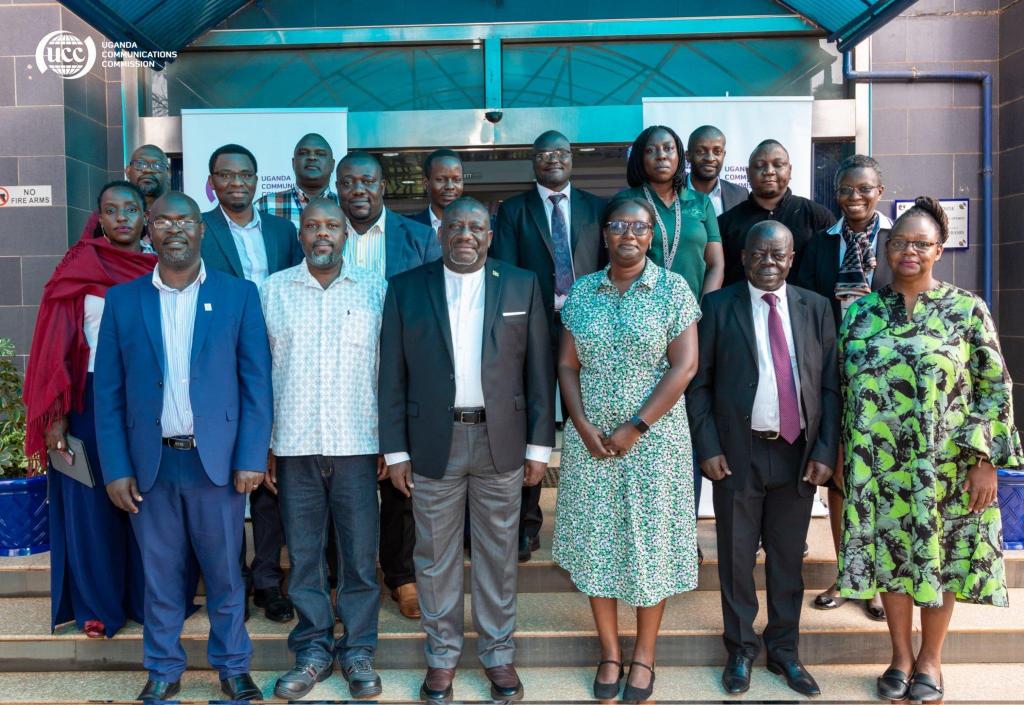In an address at the Annual Media Convention held at Makerere University on Tuesday, the State Minister for National Guidance, Hon. Kabbyanga Godfrey Baluku underscored the transformative potential of artificial intelligence (AI) while emphasizing the challenges it poses, particularly concerning misinformation. In his speech, Hon. Kabbyanga focused on the dual-edged nature of AI —and its ability to amplify both positive and negative impacts on society.
Hon. Kabbyanga acknowledged AI’s profound influence on every facet of modern life, from daily activities to global communication. “As we all know, AI is one of the most transformative technologies of our time, holding the power to influence nearly every aspect of our lives, including global communications,” he said —expressing concern about misinformation, and highlighting how the revolutionary technology can exacerbate and combat this pervasive issue.
While artificial intelligence can quickly disseminate information using fake profiles and altered content it also provides resources, for identifying and combating these narratives to uphold factual correctness. “While AI can unfortunately be misused to amplify deceptive content through means like bots and fake accounts, it also holds the potential to filter and promote accurate information,” the State Minister told the audience.
Hon. Kabbyanga further stressed the ethical responsibility that comes with AI’s power. He urged for the creation of standards to regulate the development and application of AI emphasizing transparency and accountability while prioritizing the welfare of Ugandan citizens. He fervently advised the Uganda Communications Commission (UCC) to anticipate progress in AI and adjust accordingly with urgency. UCC is expected to handle this task through their newly developed AI Task Force which was introduced on July 26th. Comprised mainly of experts from within the Commission and academia, the Task Force is developing a comprehensive concept note on AI, covering various aspects such as regulation, ethics, and potential applications.

In a notable shift, Hon. Kabbyanga praised the recent decision by the First Lady and Minister of Education and Sports, Hon. Janet Museveni to allow the use of gadgets such as smartphones, laptops, and tablets in schools. He argued that restricting gadgets in educational settings hinders students’ progress, particularly in a digital age where research and learning rely increasingly on technology. Instead of banning gadgets, he advocated regulating content and ensuring students access appropriate educational material.
Hon. Kabbyanga recalled personal experiences from their time at university, contrasting the crowded lecture halls and libraries with today’s digital learning environments. With gadgets and AI, he said students can access vast libraries and attend lectures remotely, making education more accessible and flexible. In addition, Hon. Kabbyanga said the Ministry is committed to expanding digital resources in schools, including the introduction of computers at the primary school level, to enhance the learning experience.
The State Minister called to embrace AI rather than fear it. Acknowledging the difficulties presented by misinformation but remaining optimistic about the prospects for overcoming them through teamwork and thoughtful technology management is key, to addressing these issues.
Also read:
The State Minister emphasized the importance of leveraging AI capabilities to foster an informed and educated populace that is better equipped to handle challenges and setbacks.
He ended his keynote speech on an optimistic note —declaring the Annual Media Convention open and calling for continued dialogue and innovation in the face of AI’s rapid advancement.













